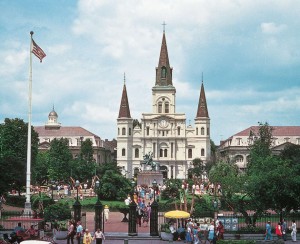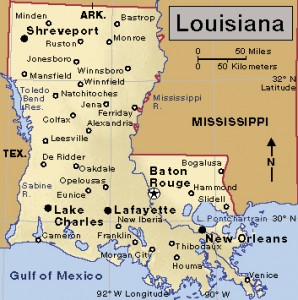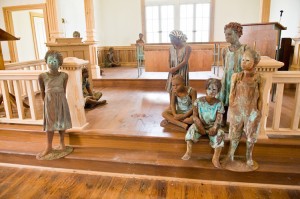New Orleans 300
Tuesday, May 8th, 2018May 8, 2018
Yesterday, May 7, marked the 300th anniversary of the 1718 founding of New Orleans, one of the world’s busiest ports and the largest city in Louisiana. The city is also a business, cultural, and industrial center of the southern United States. True to the character of New Orleans, the city famous for Mardi Gras is celebrating its birthday in grand style. Tricentennial events began late in 2017 and will continue throughout 2018.
The city’s famous St. Louis Cathedral is hosting a celebration of 300 years of Roman Catholicism in the United States. The women of New Orleans, from nuns and chefs to jazz singers and civil rights activists, are being honored in a city-wide and year-long event called “Builders and Rebuilders.” The city’s early French history is detailed in an exhibition called “New Orleans, the Founding Era” at the Historic New Orleans Collection, a museum and research center in the storied French Quarter. The era of Spanish rule (1762-1800) is recalled in a series of portraits at the Ogden Museum of Southern Art.

St. Louis Cathedral faces Jackson Square in the heart of the French Quarter in New Orleans, Louisiana. Credit: Sara Dreyfuss
Numerous concerts and festivals are celebrating the city’s famous jazz music scene and its delicious and renowned Cajun cuisine. Notable projects for the tricentennial include the renovation of the city’s historic Gallier Hall, an expansion of Louis Armstrong International Airport, and improvements to famed Bourbon Street and to parks along the riverfront.
New Orleans lies along the Mississippi River, about 100 miles (160 kilometers) north of where the river flows into the Gulf of Mexico. It is the South’s oldest major city. New Orleans was founded in 1718 by Jean Baptiste le Moyne, Sieur de Bienville. Bienville was governor of the French colony of Louisiana. He named the city La Nouvelle-Orléans (French for New Orleans) after Philippe, Duke of Orléans, who ruled France for King Louis XV, then a youth. The city became part of the United States with the 1803 Louisiana Purchase.






